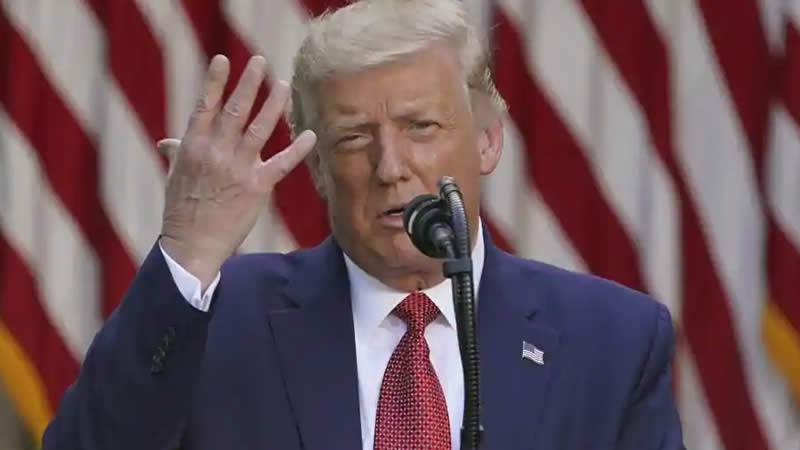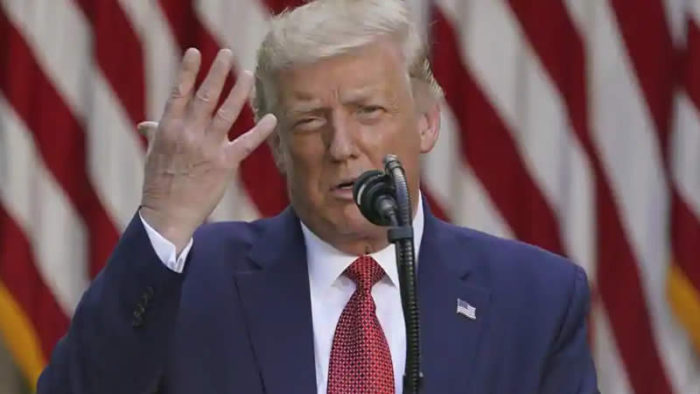Beyond the dollars, it could well be too late for the GOP to de-Trumpify. Trump has mainstreamed crazy into the party. Look at the House Republican caucus. It is dominated by Trump extremists. Two-thirds of House Republicans backed his scheme to defy the popular will and overturn the election. Members of the caucus spoke at the rally where Trump and others incited the mob that would raid the Capitol.
After the attack, House Republicans, notably Rep. Matt Gaetz of Florida, pushed the false and absurd conspiracy theory that the violence was the fault of antifa operatives who had infiltrated the pro-Trump protestors. They were trying to defend the mob. The new class of House Republicans include QAnon follower.
This band of coup-supporting, QAnon-friendly, Trump-cheering Republicans are only seven seats away from gaining control of the House. For anyone thinking (or hoping) Trumpism is gone once Trump is out of the White House, just look at the lower chamber. (The 50-50-divided Senate, too, will still contain a Trumpish bunch of Republicans.)
Then there’s Trump’s base. It may be too early to determine if millions of Americans who voted for Trump will sour on the former reality-TV show con-man due to the ransacking of the Capitol. One quick poll found that 45 percent of Republicans approved the terrorist attack. That’s a shocking stat. Even if that number is lower, it is likely that millions of Trump voters will stand by their man, believe his false claims of a fraudulent election, and rally to his phony Lost Cause narrative.
This will be an obstacle for any GOP that wants to become a post-Trump party. Trump and his loyalists have pledged to mount primary challenges against Republicans who did not support his coup. They have vowed to make this a litmus test for Republicans—and to initiate a civil war within the party over this one question. If millions of Republican voters stay with Trump, he and his minions can make good on this threat.
When the tea party arose in 2009, Republican leaders, including then-soon-to-be House Speaker John Boehner, saw it as a force they could opportunistically exploit and ride into power. But the extremist movement quickly swamped Boehner and others. Boehner won the majority but lost control of his own caucus in the House, and he eventually fled to calmer days of lobbying and sipping red wine.
A similar dynamic occurred with the GOP and Trumpism. With millions of supporters, Trump crashed the party and forced it to bend its knee to him and his flock. The party did so all too willingly and transformed itself into a cult of personality for Trump. For many Republicans, this was a cowardly concession to political reality. (We’re looking at you, Ted Cruz.) Defy Trump and you were toast—because he had the masses (and conservative media, including Fox News and Rush Limbaugh) on his side, and he could reach and inflame them with a single tweet.
How much will all that change now? Certainly, an out-of-office Trump will be far less powerful. But if he retains his fundraising clout and his influence over millions who believe his bullshit about a stolen election, he will not easily be vanquished from the Republican Party. At the rally that preceded the terrorist raid on the Capitol, a screaming Donald Trump Jr. railed against Republicans who were not fighting for his father and screamed from the stage, “It’s Donald Trump’s Republican Party.” He was right.
Hours later—after Trump’s rioters rampaged and killed on Capitol Hill—many in the Republican establishment who had loyally served and enabled Trump began scurrying away from their Dear Leader. Days later, it no longer seemed impossible that some Republican senators would support a second impeachment of Trump.
But after years of embracing Trump, the Republican Party will not be able to cleanse itself of Trumpism and its hate, paranoia, bigotry, and extremism. There are historical reasons why all this took root within the GOP, and there are nasty political realities that cannot be wished away by those Republicans who might finally fear things have gone too far.
When he ran for president, Trump successfully mounted a hostile takeover of the Republican Party. And he has held the the GOP hostage ever since, with many in the party willingly becoming hostages. Now, despite all the damage he has done to the party and the nation, he will not be easily dumped. More important, the anger and hatred Trump unleashed—which the GOP for years accepted and exploited—will not disappear once he departs 1600 Pennsylvania Avenue.
Whatever the size, Trump’s authoritarian movement remains, and, as tragically demonstrated this week, it has a militant wing that yearns for armed rebellion. Trump knows all this. On Friday morning, he tweeted, “The 75,000,000 great American Patriots who voted for me, AMERICA FIRST, and MAKE AMERICA GREAT AGAIN, will have a GIANT VOICE long into the future. They will not be disrespected or treated unfairly in any way, shape or form!!!”
Long into the future. That may be no idle boast. Because of this, there will be no simple, no-mess break-up. No matter what Trump himself does, the GOP’s Trump problem—and the nation’s—is not going away.
Source: motherjones







